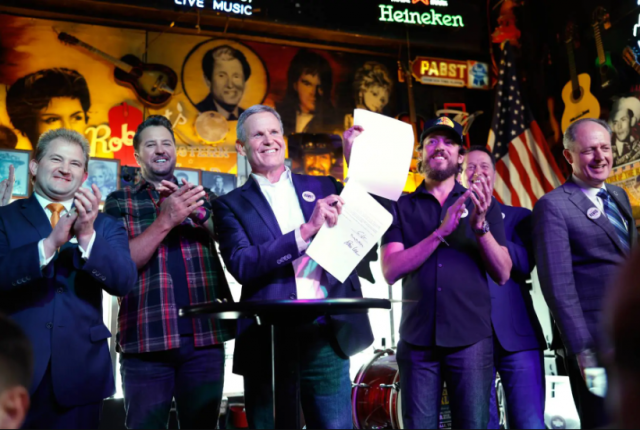Tennessee passes ELVIS Act aiming to protect artists from AI
The ELVIS act is aimed at protecting musicians from AI impersonation and broadening existing privacy rights.

The US state of Tennessee has signed the ELVIS Act into law taking the lead in protecting artists in the age of Artificial Intelligence-powered deepfakes and unauthorised uses of artists' voices and likenesses.
The full acronym of ELVIS; Ensuring Likeness Voice and Image Security Act of 2024. The law significantly broadened existing privacy rights.
Previously only covering 'name, photograph, or likeness,' the updated legislation now includes specific protections for voice and AI-related concerns.
Gov. Lee signed the ELVIS Act into law on Thursday with the support of country music heavyweights like Luke Bryan and Chris Janson.
The unusual signing took place at a local honky tonk, prompting Lee to call it 'the coolest bill signing ever.
The ELVIS Act, introduced in January by Gov. Lee, State Senate Majority Leader Jack Johnson (R-27), and House Majority Leader William Lambert (R-44), gained significant backing from Tennessee's artists, including Lindsay Ell, Michael W. Smith, Natalie Grant, Matt Maher, and Evanescence's David Hodges. Additionally, the recorded music industry and the global Human Artistry Campaign – an initiative pushing for responsible AI use and supported by over 180 organizations like the RIAA, NMPA, BMI, ASCAP, Recording Academy, and A2IM – voiced their support for the groundbreaking bill.
In the United States, right of publicity laws vary widely from state to state. This creates a confusing patchwork that makes it difficult to consistently protect one's ownership of name, likeness, and voice. These laws become even more complex when dealing with rights after death. The growing threat of AI impersonation has fueled a push in the music industry to establish a federal right of publicity.
Tennessee's ELVIS Act replaces the outdated Personal Rights Protection Act of 1984 (a law partially inspired by Elvis Presley's legacy). The new Act makes two significant changes. First, it explicitly protects a person's voice from unauthorized use. Second, it broadens the scope of prohibited uses beyond just advertising. This means the ELVIS Act likely covers any unauthorised use of a person's likeness or voice, whether in a documentary, song, book, or other contexts.



















COMMENTS
Comments are moderated and generally will be posted if they are on-topic and not abusive.
For more information, please see our Comments FAQ